Business
Driving Resilient Economies Through the Digitization of Small and Medium Enterprises

By
Gerald Maithya
Startups Lead Microsoft Africa Transformation Office
Small and Medium Enterprises (SMEs) are a crucial part of contributing to Africa’s inclusive socio-economic growth. These businesses anchor the economies of countries and are contributing to inclusive socio-economic growth. In emerging economies, SMEs account for 40% of GDP, and generate at least 90% of new jobs.
This is even more pronounced in Africa, where more than 60% of Africa’s population is under the age of 25. SMEs account for about 80% of jobs in Africa, while the African Union Development Agency notes that up to 90% of the population in African countries such as Uganda, Ethiopia, and Kenya are employed within SMEs.
In Nigeria, SMEs account for 96% of businesses, and 84% of employment in the country, and contribute 48% of the country’s GDP, according to a PricewaterhouseCoopers report. Of these SME’s, 55% are in wholesale or retail business.
SMEs employ people, supply products and services and act as an important link in the manufacturing value chain, generating economic activity along the way. The way that many manufactured products reach consumers is through SMEs, usually through a network of small independent retail stores such as dukas and kiosks in Kenya, ojas in Nigeria, hanouts in Morocco or spaza shops in South Africa. In doing so, SMEs are the cornerstone of most economies. By enabling SMEs to grow and compete in the value chain, countries’ economies can be strengthened.
SMEs face many obstacles on the path to success
Despite the important role SMEs play in African economies, there are several challenges standing in the way of their survival and success. In fact, research indicates that up to 80% of African SMEs fail within the first five years, despite having the highest entrepreneurship rate in the world. Infrastructure and connectivity, access to business enablement tools, access to finance and digital skills are all potential stumbling blocks for SMEs.
The biggest obstacle most SMEs face is accessing finance and affordable lending. These businesses frequently lack suitable information such as a credit history, financial statements and other prerequisite data points, while the traditional credit-scoring models that many financial institutions use prejudice SMEs. Without access to working capital, SMEs are unable to invest in their business and grow. There is a need to enable tools that SMEs can utilise to collect and manage transactional data that can be used to provide valuable business insights to guide decision-making for the SME, and that can be leveraged to create financial reports.
Digitising SMEs has benefits that support economic growth
Digitisation can help businesses build a financial and transactional history that helps them access loans. This information and well-organised data can enable access and diversification of financing for SMEs in Africa. This financing in turn helps them grow their business, employ more people and contribute to their country’s economy.
Microsoft engages with international organisations such as the IFC, and local financial services institutions, to create innovative financing mechanisms for SMEs on the African continent that enable them to build a credit record and differentiated data sets that tell the story of the business rather than a pure money-in-money-out overview. This allows for a wider range of borrowing opportunities, enabling SMEs to become part of the integrated value chain and participate in the formal economy.
Business tools are an important part of the journey
To successfully complete their digitisation journey, these small and medium businesses also need connectivity and devices that are suitable for business development. Challenges around connectivity and device affordability are certainly not new to Africa. Though the issue of internet access varies considerably depending on the country in question, high cost of data is still a major hurdle for many nations across the continent. Research from the Alliance for Affordable Internet shows that just 14 out of 48 countries in Africa have access to affordable internet, with affordability defined as 1GB of mobile prepaid broadband costing two percent or less of the average monthly income.
Microsoft is working to address Africa’s connectivity issues through the Airband Initiative, which provides investment into infrastructure that drives connectivity. The initiative partners with African startups that are overcoming barriers to affordable internet access in unconnected communities by using TV white space (TVWS) and other innovative last-mile access technologies. Accelerated internet adoption is the precursor to digital enablement. Recently, Microsoft announced that it is expanding the Airband Initiative through new partnerships with local and global providers to bring internet access to 100 million Africans by the end of 2025, and working with partner Viasat, Microsoft is extending satellite connectivity to 5 million Africans.
Another sticking point is access to business hardware. The vast majority of SME owners and entrepreneurs in Africa rely on smartphones to run their businesses. However, being able to access devices such as laptops with preloaded software could help business owners to manage their business processes and reap the rewards of access to best-in-class Software as a Solution (SaaS) products more easily.
As a company, Microsoft has recognised that different SMEs have entirely different solution requirements. Microsoft differentiates itself by working with Independent Software Vendors (ISVs) and startups who build software solutions that can be used with Microsoft technologies. This allows businesses of all sizes to these solutions from the marketplace, with the benefit that when curating a business bundle, an SME can look at their specific needs and match to the software that’s in the Microsoft Marketplace.
The digitisation journey must include skills development
SME owners often have little access to business skills development opportunities. Through platforms such as the Africa Transformation Office’s SME Skilling package, Microsoft Learn, the Cloud Academy and LinkedIn Learning, SME owners can increase their business understanding to help their day-to-day business operations, build their business literacy and develop the technical understanding necessary to support their digitisation journey.
Digitisation can significantly enhance financial inclusion, most particularly for unserved and underserved enterprises such as SMEs. Creating an enabling environment for these important economically active businesses that helps them thrive and participate actively in the continent’s economies is essential for sustainable and inclusive economic growth.
Business
NNPC Raises Petrol Price to ₦933 in Lagos, ₦960 in Abuja

NNPC Raises Petrol Price to ₦933 in Lagos, ₦960 in Abuja
The Nigerian National Petroleum Company Limited (NNPC) has increased the pump price of petrol at its retail stations to ₦933 per litre in Lagos and ₦960 per litre in Abuja, triggering fresh concerns among motorists and businesses over rising fuel costs in Nigeria.
The national oil company raised the price by ₦103 in Lagos, moving from ₦830 per litre to ₦933, while motorists in the federal capital Abuja now pay ₦960 per litre, representing an ₦85 increase from the previous ₦875 price.
Checks on Wednesday showed that the new petrol price has already been implemented at several NNPC retail outlets, including stations at Apple Junction and Ago Palace Way in Lagos, while stations along Airport Road in Lugbe, Abuja, were dispensing petrol at the new ₦960 rate.
The latest fuel price hike comes shortly after the Dangote Petroleum Refinery increased its ex-gantry petrol price to ₦874 per litre on March 2, up from ₦774 per litre, a development that has influenced retail pricing across the downstream petroleum sector.
Industry analysts say the rise in petrol prices in Nigeria is closely linked to growing geopolitical tensions in the Middle East, which have unsettled global energy markets and pushed up crude oil prices.
READ ALSO:
- Yul Edochie Blasts Arise TV Anchor Rufai Oseni in Viral Video
- Court Discharges Abba Kyari, Brothers in NDLEA Non-Disclosure of Assets Case
- Kano State House of Assembly Initiates Impeachment Proceedings Against Deputy Gov
Recent market data shows that Brent crude oil rose to about $85 per barrel on March 3, compared with around $72 per barrel recorded on February 28, intensifying pressure on petrol landing costs for markets that still rely partly on imports.
Experts note that Nigeria’s deregulated fuel market means pump prices now fluctuate in response to international oil prices, exchange rate volatility, and supply chain costs.
Meanwhile, the Petroleum Products Retail Outlets Owners Association of Nigeria (PETROAN) has called on the federal government to ensure steady crude oil supply to domestic refineries, particularly as Nigeria seeks to strengthen local refining capacity.
The association warned that continued instability in global oil markets could weaken the naira, raise petrol prices further, and push inflation higher, thereby worsening the cost-of-living challenges faced by Nigerians.
Energy stakeholders have also stressed the importance of expanding local refining operations, including production from the Dangote refinery and rehabilitation of government-owned refineries, to reduce dependence on imported fuel.
The latest price adjustment reflects the ongoing transition in Nigeria’s downstream petroleum sector following the removal of fuel subsidies and the adoption of a market-driven pricing system.
Motorists across Lagos, Abuja and other major cities have expressed concern that rising petrol prices could increase transportation costs, food prices and overall inflation, placing additional pressure on households and businesses.
NNPC Raises Petrol Price to ₦933 in Lagos, ₦960 in Abuja
Business
TCAN Targets Logistics Reforms to Drive Economic Growth at 2026 Transport Summit
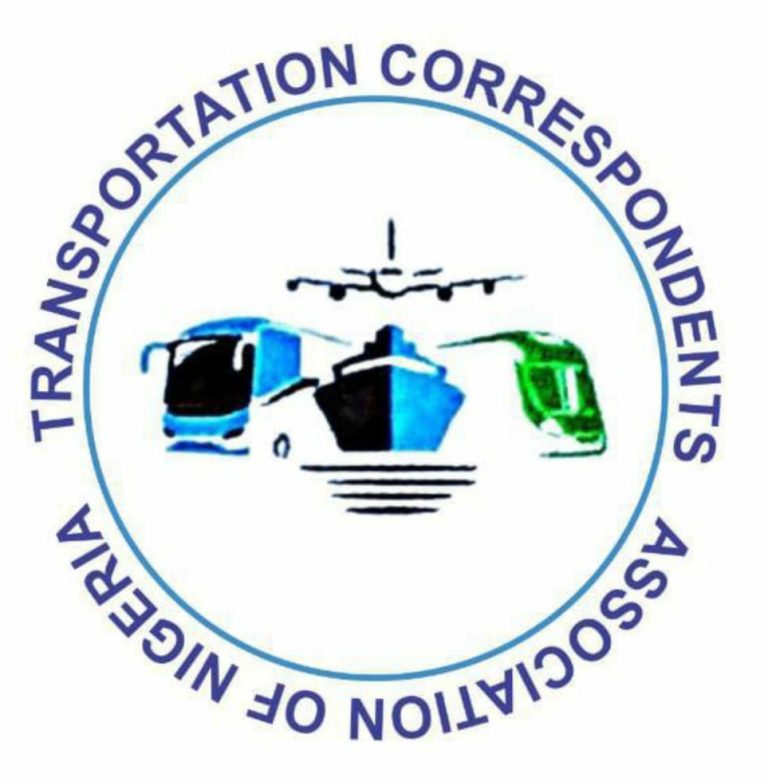
TCAN Targets Logistics Reforms to Drive Economic Growth at 2026 Transport Summit
The Transportation Correspondents Association of Nigeria (TCAN) has begun preparations for its 2026 Annual Transport Summit, placing Nigeria’s logistics value chain at the centre of national economic discourse.
Scheduled for September 2026 in Lagos, the summit will be held under the theme, “Unlocking Economic Growth Through Transportation Logistics.”
It is expected to draw major stakeholders across the aviation, maritime, rail and road transport sectors, alongside logistics service providers, policymakers, regulators, development partners and financial institutions.
In a statement, TCAN said the summit would critically examine how efficient transportation logistics can serve as a catalyst for sustainable economic growth, trade facilitation, job creation and regional integration, especially in the context of ongoing reforms and infrastructure investments within the sector.
Chairman of TCAN, Tola Adenubi, described transportation logistics as the backbone of economic development, stressing that the performance of Nigeria’s logistics ecosystem directly impacts the nation’s competitiveness.
“From cargo handling at airports and seaports to inland freight movement and last-mile delivery systems, the efficiency of Nigeria’s logistics architecture plays a decisive role in determining the competitiveness of the nation’s economy,” Adenubi said.
He noted that the 2026 summit would explore innovative strategies to strengthen the sector, including digital transformation, infrastructure financing models, public-private partnerships and regulatory reforms aimed at optimising performance.
Chairman of the 2026 Conference Committee, Suleiman Idris, said the summit would feature high-level panel discussions, keynote addresses and interactive sessions designed to assess the current state of Nigeria’s transportation logistics framework.
According to him, deliberations will focus on identifying bottlenecks hindering seamless cargo and passenger movement, examining the impact of multimodal transport integration on economic expansion, and highlighting investment opportunities within the logistics and supply chain ecosystem.
Idris added that experts at the summit would also provide policy recommendations targeted at enhancing operational efficiency and boosting Nigeria’s global competitiveness in trade and transportation.
As part of the programme, TCAN will confer its Champions of Transport Industry Development (COTID) certificates on selected government agencies and private operators that have made significant contributions to the advancement of Nigeria’s transportation sector.
Over the years, the TCAN Annual Transport Summit has evolved into a credible platform for constructive engagement between regulators, operators and other industry stakeholders.
The association said the 2026 edition aims to deepen policy conversations, promote transparency and accountability, and accelerate reforms capable of unlocking the full economic potential of Nigeria’s transport and logistics industry.
With logistics increasingly recognised as a key enabler of economic growth, industry observers expect the 2026 summit to set the tone for fresh strategies that could reshape Nigeria’s transportation landscape in the years ahead.
Business
Petrol Jumps to ₦937 in Lagos, ₦975 in Abuja Amid Middle East Oil Crisis

Petrol Jumps to ₦937 in Lagos, ₦975 in Abuja Amid Middle East Oil Crisis
Nigeria’s fuel market is under renewed strain as escalating tensions in the Middle East push global crude oil prices above $80 per barrel, driving domestic petrol prices toward the ₦1,000 per litre mark. Motorists across the country, from Lagos to Abuja, have woken to sharp increases at filling stations, with pump prices rising almost overnight.
In Lagos, several outlets raised the price of Premium Motor Spirit (PMS) from ₦830–₦835 per litre to ₦937, while in the Federal Capital Territory, major retailers including NNPC Limited and MRS Oil Nigeria Plc increased prices from ₦875 to ₦975 per litre. Independent marketers were dispensing fuel at about ₦960 per litre, reflecting the immediate effects of rising international oil prices.
The surge followed a fresh upward review in the ex-depot price by Dangote Petroleum Refinery & Petrochemicals, which moved its gantry price from ₦774 to approximately ₦874–₦875 per litre. Industry insiders linked the hike to rising replacement costs and the ongoing surge in crude prices. A senior refinery official confirmed that petrol loading operations were temporarily suspended earlier in the week, further tightening supply expectations and accelerating retail price adjustments.
READ ALSO:
- US Military Says It Has Struck Nearly 2,000 Targets in Iran as War Escalates
- FG Bans Roadblocks, Cash Tax Collection Nationwide
- Trade Row Looms as Trump Threatens Spain After Refusal to Support Iran Strikes
The Middle East conflict, particularly involving the United States, Israel, and Iran, has heightened fears of disruption around the Strait of Hormuz, a strategic maritime route responsible for nearly one-fifth of global crude supply. Analysts warn that prolonged instability in the corridor could push global oil prices to $100 per barrel or higher, with direct consequences for Nigeria’s cost-reflective petrol pricing system.
The Petroleum Products Retail Outlets Owners Association of Nigeria (PETROAN) described the situation as worrisome, noting that rising crude prices inevitably feed into domestic pump prices, given the current deregulated pricing regime. PETROAN’s National President, Mr Billy Gillis-Harry, emphasized the urgent need to strengthen Nigeria’s domestic refining capacity as a protective buffer. The association also called for consistent crude supply to local refineries and accelerated rehabilitation of the country’s four state-owned refineries to cushion the economy against external shocks.
For Nigerians, the impact has been immediate. Commercial drivers and commuters report that rising fuel costs are forcing them to adjust transport fares, adding pressure to household budgets. “I bought fuel yesterday at ₦875, and this morning it is ₦975. Every increase affects us directly. If we don’t raise fares, we run at a loss,” said Mr. Chinedu Okeke, a driver in Abuja.
Commuters fear the ripple effect of higher petrol costs on everyday goods. “If fuel is almost ₦1,000 per litre, it means fares and prices of essentials will rise. Things are becoming unbearable,” said Mrs. Aisha Ladan, a civil servant in the capital city. Analysts warn that increased transport costs could widen inflationary pressures, as businesses pass on higher operational expenses to consumers.
The psychological impact of petrol nearing the four-digit mark is also significant. For many Nigerians, it represents another milestone in a period already marked by subsidy removal, currency volatility, and persistent price adjustments. Unless global energy markets stabilize or domestic refining capacity is expanded, petrol prices in Nigeria may soon cross ₦1,000 per litre, with broad implications for the economy.
Petrol Jumps to ₦937 in Lagos, ₦975 in Abuja Amid Middle East Oil Crisis
-
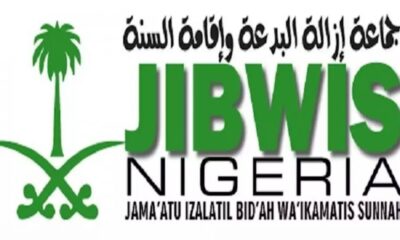
 metro6 hours ago
metro6 hours agoIslamic Scholar Barred From Ramadan Tafseer After Criticising Tinubu, Governors
-
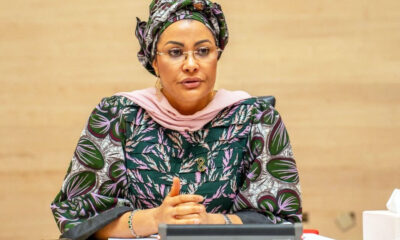
 metro1 day ago
metro1 day agoHow Ikwechegh’s ₦1.15tr Interrogation Led to Tinubu’s Cabinet Shake-Up
-
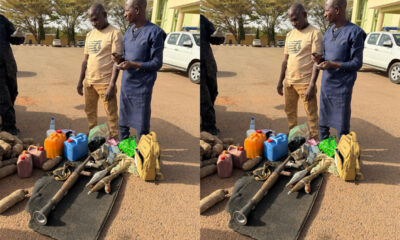
 metro2 days ago
metro2 days agoDSS Busts Alleged Arms Trafficking Network in Gombe, Seizes RPGs
-

 News2 days ago
News2 days agoRelief Radiant Hearts Foundation Launched in Iwo, Promises Hope for the Vulnerable
-

 Politics2 days ago
Politics2 days agoAtiku’s Son Resigns as Adamawa Commissioner Following Fintiri’s APC Defection
-

 International1 day ago
International1 day agoMystery as Iranian Warship Sinks off Sri Lanka, Over 100 Feared Missing
-

 Opinion2 days ago
Opinion2 days agoThe world dislikes the weak, by Hakeem Baba-Ahmed
-
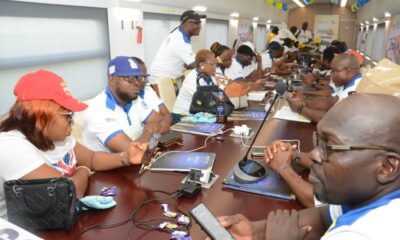
 Railway2 days ago
Railway2 days agoHistoric, Rotary Club of Ota holds fellowship on moving NRC train















